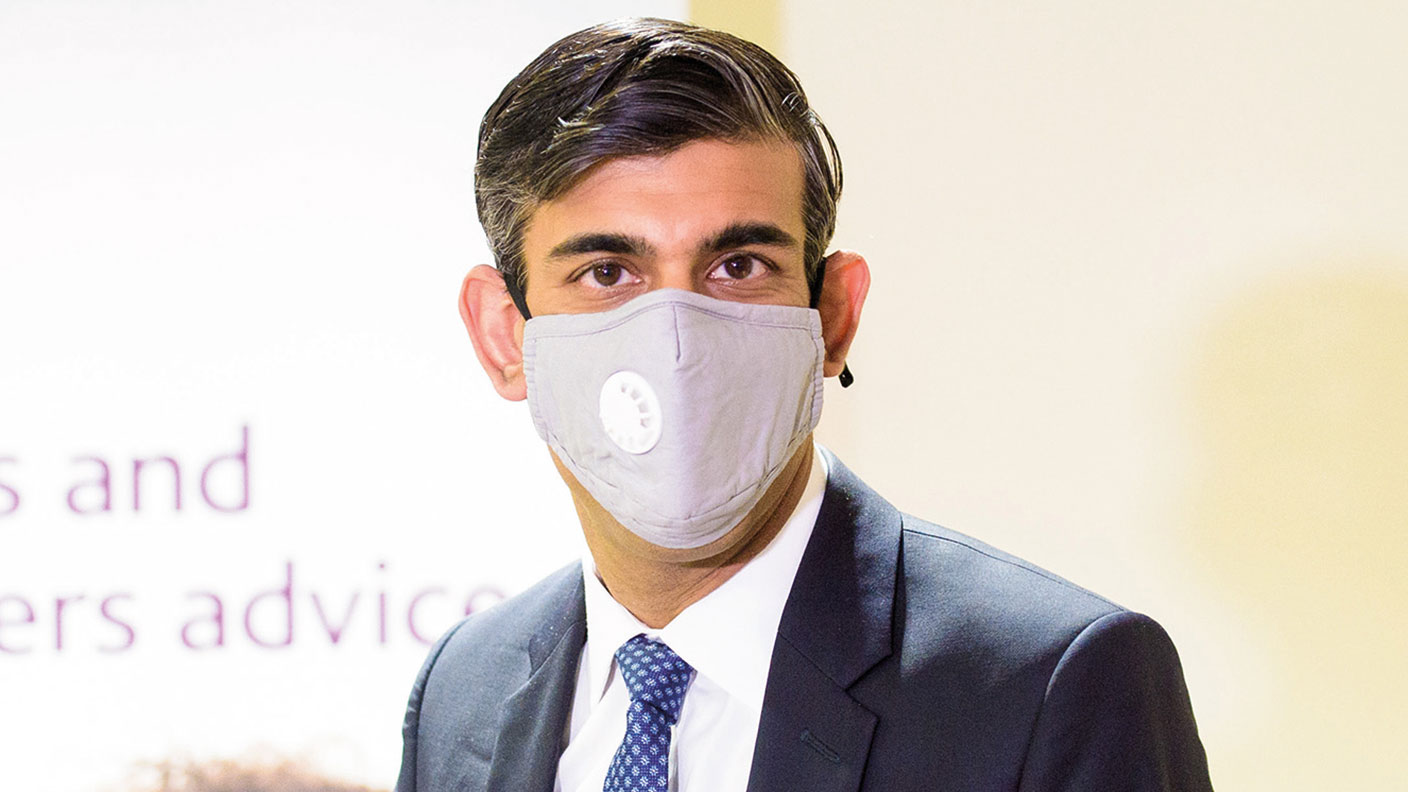The best thing you can do for your children is to secure your own finances
The "Bank of Mum and Dad" is now the 11th-largest mortgage lender in the UK. But giving your children money may not be the best way to help them, says Merryn Somerset Webb.

Get the latest financial news, insights and expert analysis from our award-winning MoneyWeek team, to help you understand what really matters when it comes to your finances.
You are now subscribed
Your newsletter sign-up was successful
Want to add more newsletters?

Twice daily
MoneyWeek
Get the latest financial news, insights and expert analysis from our award-winning MoneyWeek team, to help you understand what really matters when it comes to your finances.

Four times a week
Look After My Bills
Sign up to our free money-saving newsletter, filled with the latest news and expert advice to help you find the best tips and deals for managing your bills. Start saving today!

You might be worried about the possibility of a global recession, trade war, or even Brexit. I'm worried about the Bank of Mum and Dad (BoMad). The latest report from Legal & General on the amount lent inside families to those wanting to get on the property ladder shows a huge transfer of wealth down the generations. In 2018 BoMaD lending came to £5.7bn. This year it is forecast to hit £6.3bn, with the average contribution knocking around £24,000. It isn't quite the same thing (most parents don't expect the money back), but on the numbers alone, this makes families the 11th-largest mortgage lenders in the UK.
The trend makes sense, of course: one of the reasons for rising wealth inequality in the UK (as everywhere) is that we are all living longer so wealth is trickling down more slowly than it has in the past. There's also nothing wrong with it: if you have spare cash why on earth not give it to your children to spend? As financial advisers like to say: there are no pockets in a shroud. The problem is that those who don't have spare cash are giving too finding it by downsizing, using equity release, cashing in pensions and, worst of all, taking out more debt themselves.
The result? Twenty-six percent of those who have lent or given money say they are worried they won't have enough to live on in retirement; 15% say they have already accepted a lower standard of living; 11% say they feel less secure. In a world where the state pension age is constantly shifting out, and so the number of people in receipt of it is shifting down (by about 300,000 in the last two years), this is miserable.
MoneyWeek
Subscribe to MoneyWeek today and get your first six magazine issues absolutely FREE

Sign up to Money Morning
Don't miss the latest investment and personal finances news, market analysis, plus money-saving tips with our free twice-daily newsletter
Don't miss the latest investment and personal finances news, market analysis, plus money-saving tips with our free twice-daily newsletter
It also isn't very sensible. As I think I might have asked here before, will your children really thank you if, as a result of your generosity now, they have to help finance your old age later? I doubt it. Perhaps the best present you can give them is not your own delayed retirement (6% have delayed retiring to finance giving), but your own financial security? You can't control global markets or economies. You can (to a degree at least) control this.
Mind-blowing opportunities
Finally to Brexit, where passions are as inflamed as ever. There is no one in this fight who isn't convinced they have right (and democracy) on their side. For more on this see here, where I look at how Adam Smith forecast the outrage machine.
You should also read our book reviews (yes, we do think you should read Rod Liddle on Brexit!), we also explain just how this proroguing business works, and finally we think about whether it is time to be "very positive" on the increasingly cheap UK stockmarket. Answer: if you can manage to rise above everyone else's Brexit hysteria, very probably yes.
Get the latest financial news, insights and expert analysis from our award-winning MoneyWeek team, to help you understand what really matters when it comes to your finances.

-
 Japanese stocks rise on Takaichi’s snap election landslide
Japanese stocks rise on Takaichi’s snap election landslideJapan’s new prime minister Sanae Takaichi has won a landslide victory in a snap election, prompting optimism that her pro-growth agenda will benefit Japanese stocks
-
 Alphabet 'is planning a 100-year bond': would you back Google for 100 years?
Alphabet 'is planning a 100-year bond': would you back Google for 100 years?Google owner Alphabet is reported to be joining the rare century bond club
-
 Should capital gains tax be higher or lower?
Should capital gains tax be higher or lower?Editor's letter Capital gains tax is up for review. There are plenty of long-term arguments to be had about this. But in the short term, Merryn Somerset Webb has a few ideas for the government should it want a little cash inflow.
-
 Inheritance tax: just abolish the entire thing
Inheritance tax: just abolish the entire thingEditor's letter Why not abolish inheritance tax and replace it with a gift tax on the recipients of unearned cash – wherever it comes from?
-
 Save into your pension while you can
Save into your pension while you canEditor's letter Fiddling with pension tax relief could be a nice little earner for a government hungry for cash, says Merryn Somerset Webb. Save what you can while you can.
-
 Good news for defined-benefits pensions
Good news for defined-benefits pensionsEditor's letter A rate rise or two could make the defined-benefits pensions deficit simply disappear, says Merryn Somerset Webb. In the meantime, there are a couple of things pension fund managers could do to help things along.
-
Don't get too relaxed about your pension
Editor's letter George Osborne might leave pensions alone for now, says Merryn Somerset Webb. But don't count on it staying that way.
-
Pensions: the counter-revolution
Editor's letter An awful lot of people are beginning to wish Geogre Osborne had never started down the path of pensions reform, says Merryn Somerset Webb.
-
Three pension traps for the unwary
Editor's letter Pensions Freedom Day is almost upon us and you're right to be excited, says Merryn Somerset Webb. Just watch out for these three pitfalls.
-
The pensions playground
Editor's letter The many changes to pensions over the years just shows how experimental they are for politicians, says John Stepek.